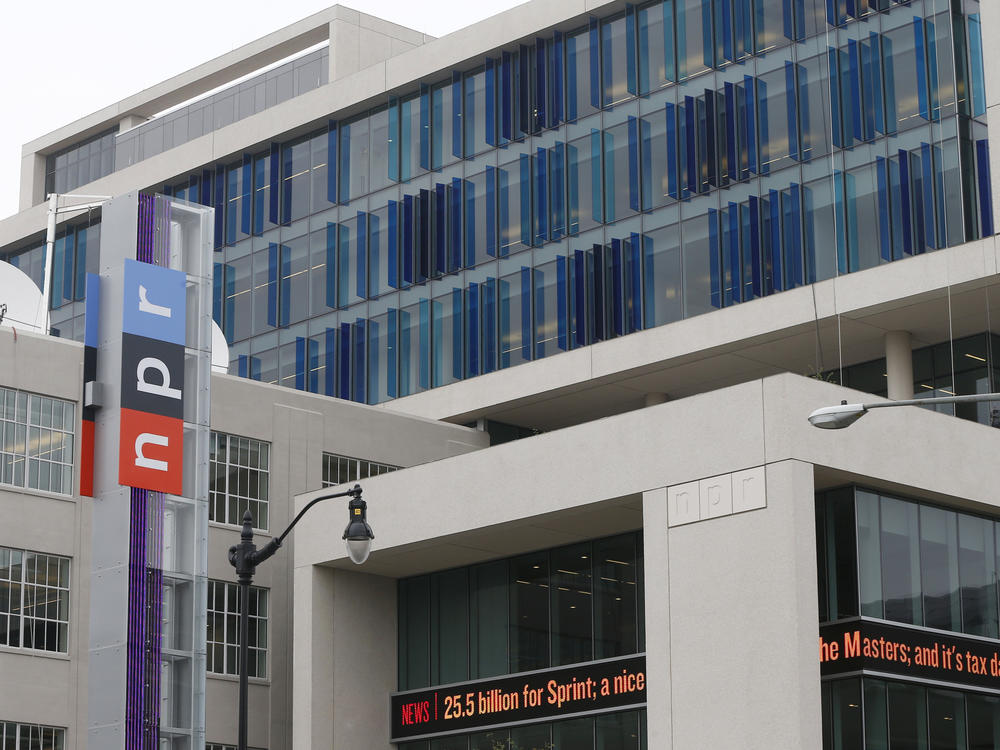Section Branding
Header Content
NPR cancels 4 podcasts amid major layoffs
Primary Content
Updated March 24, 2023 at 3:11 PM ET
NPR moved this week to cut 10% of its staff and stop production of a trio of acclaimed seasonal podcasts — Invisibilia, Louder Than a Riot and Rough Translation — as it seeks to close a yawning budget gap that stands in excess of $30 million.
The network also canceled a comedy podcast unveiled just a year ago called Everyone & Their Mom, a spinoff of the mainstay radio program Wait Wait Don't Tell Me.
"We literally are fighting to secure the future of NPR at this very moment by restructuring our cost structure. It's that important," NPR chief executive John Lansing said in an interview. "It's existential."
NPR's financial woes can be traced mainly to advertisers' growing reluctance to spend money, particularly on podcasting, in an uncertain economy. Other media outlets, including Gannett, CNN and Vox Media, and tech powerhouses such as Amazon, Google and Meta also have had layoffs in recent months.
Lansing said the network sought to protect its core public service mission of journalism while preserving what he calls its "North Star." Since joining NPR four years ago, Lansing has pushed to ensure the network has a bigger and broader audience base, rooted in younger and more diverse listeners, readers and consumers who will serve as the next generation of NPR supporters.
Layoffs affect all parts of NPR
The network has not made any specific announcements, choosing instead to let those departing decide how to share the news. Karen Grigsby Bates, a senior correspondent for the Code Switch team who is based at NPR West in Culver City, Calif., revealed on Twitter that she had been let go. A number of longtime NPR staffers have chosen to leave. Senior European Correspondent Sylvia Poggioli, who has been with NPR for 41 years, announced her retirement last week.
The layoffs also affect people who work behind the scenes to produce the shows and podcasts, design visual elements for the web, conduct audience research, and do the myriad other functions required of a major news network. National Public Media, NPR's ad-services arm owned jointly with PBS and GBH in Boston, is not included in this round of layoffs because it went through its own downsizing earlier this year, Lansing said.
Some of the reaction on social media has focused on the fact that most of the canceled podcasts were hosted by people of color and women. Yet, in a note to staff on Friday, Lansing said NPR structured the layoffs in such a way that its workforce demographics remain unchanged: 42% of remaining employees are people of color and 58% are women.
NPR in November froze most vacant positions and sharply reduced travel. But as the scope of the problem became more evident, Lansing said, NPR had to move quickly so a full strategic overhaul was not possible. The network is unifying its newsroom and programming division, which makes most of NPR's podcasts. Lansing said the current separation artificially cleaved NPR's journalism and editorial creations.
Changes coming to the investigative podcast Embedded
Lansing said no member stations would have to shuffle their program schedules, as NPR had not canceled any of its radio shows. He noted that the network has kept those podcasts that have evolved into radio programs.
"We've tried very hard to sustain the essential things that will keep us moving forward," said Anya Grundmann, NPR's senior vice president of programming and audience development, who oversees the network's entertainment and music content and also most of its podcasts.
"That includes our ability to be meaningful to audiences on digital and visual platforms, our radio audiences, our podcast audiences — our narrative journalism," Grundmann said. "I think we lose some excellent projects that have made NPR stand out.... And we're losing some great people, who are incredibly talented and who have contributed so much to NPR and to public service."
NPR says that the investigative podcast series Embedded, which has appeared irregularly, will become the umbrella under which all of NPR's investigative and enterprise narratives series will stream. Officials say it will become a frequent, dependable channel for listeners to consume NPR content.
Lansing said the network intends to remain a leading force in audio and podcasting. NPR places third in the Podtrac industry tracker, which ranks publishers based on U.S. audience size, though the network currently boasts just 49 titles — far fewer than many of its major competitors.
NPR's largest layoff since 2008 recession
Through the layoffs of about 100 people and the elimination of dozens of vacant positions, NPR intends to cut back its workforce from approximately 1,200 to about 1,050 employees. The nonprofit network's layoffs represent its largest reduction in staff since the 2008 recession.
"It's been emotional, I have to tell you that," said Pat O'Donnell, executive director of SAG-Aftra's Mid-Atlantic division. The union represents 570 people at NPR, primarily in news and programming. "The financial paperwork and the meetings with SAG-Aftra proved they needed to do something. They had to do something. It's real."
O'Donnell said the company agreed, in negotiations with the union, to enhance the severance package for laid-off workers above what was required by the collective bargaining agreement.
"To me, it seemed like they had a lot of thought behind this," O'Donnell said. "Nobody will be happy. But I do believe they told us in good faith, they negotiated this in good faith, and they carried it out to the best of their ability."
Most affected NPR staff will stay on until April 28.
Disclosure: This story was reported and written by NPR Media Correspondent David Folkenflik and NPR Intern Mary Yang. It was edited by Acting Chief Business Editor Emily Kopp. Under NPR's protocol for reporting on itself, no NPR corporate official or news executive reviewed this story before it was posted publicly.
Copyright 2023 NPR. To see more, visit https://www.npr.org.

